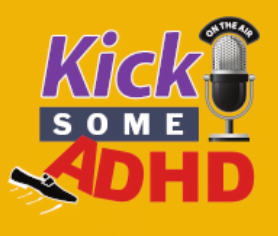
Are you frustrated by the distractions and emotions ADHD causes? It’s no wonder. Being at the mercy of inconsistent ADHD is discouraging. Luckily, research shows there is a no-cost, natural way of living with and reducing the power ADHD has over your life: meditation for mindfulness.
Let’s talk about why meditation is fantastic for ADHD.
You see, studies show that meditation helps ADHD brains work better. In fact, meditation:
- Strengthens attention, cognition, and memory. It builds awareness and improves how we deal with stress.
- Improves brain structure. Yes, that’s right. It’s phenomenal really.
- Strengthens your brain by building your prefrontal cortex. That’s the part of your brain (located right behind your forehead) responsible for focus, planning, and impulse control.
- Raises dopamine levels. Dopamine is the chemical brains need to pay attention and get stuff done. Not enough dopamine is believed to be a cause of ADHD.
Meditation sounds like an amazing solution to ADHD, right? Yet there’s a problem. Meditating can be soooooo hard for ADHD brains.
Why ADHD Adults Don’t Meditate
The reality is most people know meditation helps, and they still don’t do it. If fact, meditating is often high on the list of goals clients want me to help them reach.
Ready for a true confession? For at least 18 years of my time as a professional ADHD coach I didn’t meditate. Oh, I’d try. But I found meditating nearly impossible. I couldn’t figure out how to do it.
You see, a bunch of problems pop up when it comes to meditating if you have ADHD. Sitting still is hard. Quieting your mind is hard. Following a routine is hard. Finding the time to do it is hard. Handling emotions that arise if you do manage to quiet your mind and sit still is hard.
And, what makes meditation hard for ADHD – losing focus and having to come back to focus over and over again – is one of the things that makes it so good for us!
In fact, I discovered that struggling to meditate and doing it anyway helped me learn that I can do hard things. That is an essential life skill that lots of us with ADHD need to learn. We tend to give up when the going gets tough.
Learning we can do something that’s hard to do is a game changer. My self-confidence is stronger, and I don’t procrastinate as much. Over time, as I figured this out, my meditation muscle grew stronger. Things fell into place. Now I meditate every day for at least 20 – 45 minutes.
How to Meditate with ADHD
To meditate, sit or lie down in a quiet place. Close your eyes and try to focus your attention on something. A breath, or sounds, a phrase, or feeling.
Yes, your mind will chatter. Thoughts and sensations will bombard you. And, that’s okay. That’s what minds do. Especially ADHD minds!
Your goal isn’t to stop thinking. Your goal is to try and stay focused on the thing you’re focusing on. So when your attention drifts, and it will, notice and bring it back to your meditation focus. The game is to do your best to not get drawn into the thinking. To notice what the mind is up to. This gets so tricky for ADHD brains!
And most importantly – be kind to yourself. No shaming or judging. This simple act of noticing and not judging is key to the practice. Regardless of what’s pulled you away from your focal point and broken our concentration.
I learn a lot about myself by observing what I’m thinking about when my mind has wandered. Am I worried about something happening later that day? Ruminating about a conversation I had? Learning your mind and rumination patterns helps.
Also, observing emotions and feelings. When I first started meditating huge bubbles of fear would rise in my chest. It was hard to not try to do something about it. To just notice. I’ve learned to not fight it but be curious about the fear. Observing helps build awareness of our patterns and emotions.
As I’ve developed my meditation practice, I observed 5 tricks that helped me and in this blog here, I’m going to share them with you!
Interested in learning other ways to Succeed with ADHD? Join the ADHD Success Club here!

 Tired of struggling with ADHD? You’re in the right place. ADHD Success is loaded with free, practical tips to help you get organized, manage your time, and live more easily with Adult ADHD. Like what you read? Sign up for the newsletter now! No Spam. I promise!
Tired of struggling with ADHD? You’re in the right place. ADHD Success is loaded with free, practical tips to help you get organized, manage your time, and live more easily with Adult ADHD. Like what you read? Sign up for the newsletter now! No Spam. I promise!
0 Comments